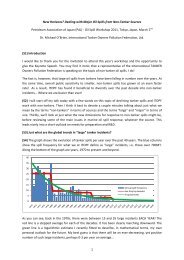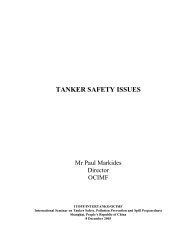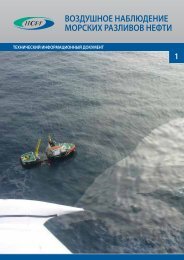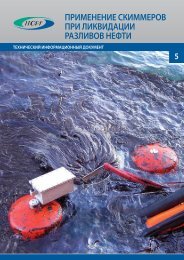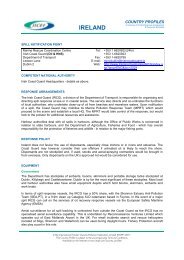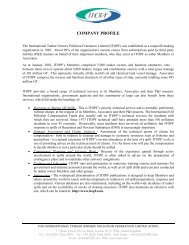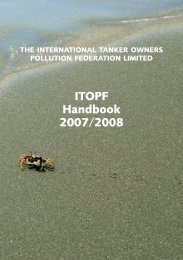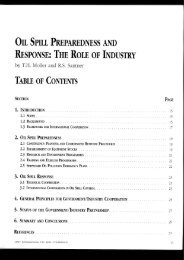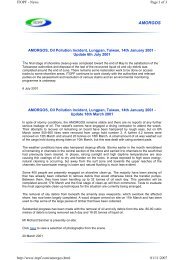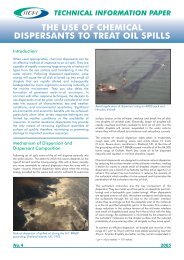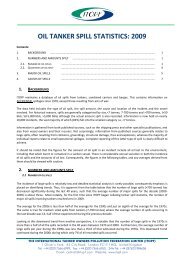Members Handbook 20023 - ITOPF
Members Handbook 20023 - ITOPF
Members Handbook 20023 - ITOPF
You also want an ePaper? Increase the reach of your titles
YUMPU automatically turns print PDFs into web optimized ePapers that Google loves.
to be supported by experienced<br />
technical and scientific advisers<br />
(including <strong>ITOPF</strong>). Other members of<br />
the management team will need to look<br />
after the various components of the<br />
overall operation, as well as logistic<br />
support, record keeping and financial<br />
control.<br />
unclear command and control and a lack<br />
of co-ordination.<br />
Such spill management problems are not<br />
overcome by inviting all interested<br />
parties to serve on one or more<br />
committees during an incident so that<br />
they can participate in the decisionmaking<br />
process. This can lead to large,<br />
unwieldy spill management teams,<br />
delayed decision making and, frequently,<br />
the adoption of inappropriate or<br />
conflicting response strategies.<br />
When the oil is on the water or on the<br />
shore, informed and decisive leadership<br />
is required, with authority vested in an<br />
appropriate individual or in a small<br />
command team. This should ensure that<br />
an effective response consistent with<br />
the contingency plan is initiated<br />
promptly. However, one individual or<br />
even a small command team cannot<br />
manage the response to a significant<br />
spill alone. It will be necessary for them<br />
Government organised response, with<br />
additional support provided by<br />
shipowners and other private entities,<br />
has proved to be a successful formula in<br />
numerous past spills. However, there is<br />
an increasing tendency by government<br />
authorities in some parts of the world to<br />
require shipowners (and even, on<br />
occasion, cargo owners) to go further<br />
and to organise and manage the cleanup<br />
of their own spills, with the<br />
authorities merely issuing directions and<br />
monitoring the results. This is despite<br />
the fact that such an obligation is often<br />
not stated in national contingency plans.<br />
This can mean that a shipowner who<br />
attempts to mount a spill response<br />
operation will be confronted by<br />
numerous practical difficulties, leading<br />
to ad hoc arrangements. To avoid this,<br />
the responsible government authority<br />
should define, prior to any spill<br />
occurring, how the shipowner’s<br />
response operation will be integrated<br />
into its own organisational structures. It<br />
also needs to guarantee that the<br />
necessary logistic support will be<br />
available in the event of a spill (eg<br />
suitable boats, oil storage facilities,<br />
trained operators). All of this needs to<br />
be tested through realistic exercises,<br />
based on actual spill experiences.<br />
19



